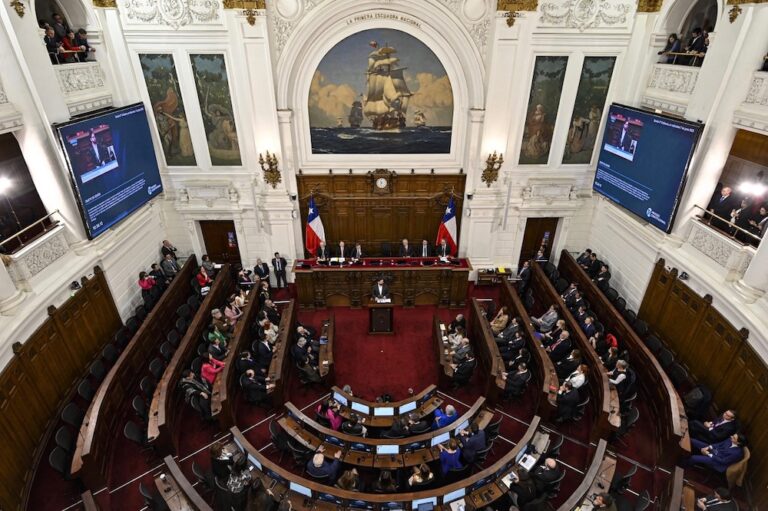(AMARC/IFEX) – In a 7 April 2004 press conference, AMARC reacted to 21 complaints launched by the Telecommunications Sub-Secretariat (Subsecretaría de Telecomunicaciones, SUBTEL) against radio stations that may be operating “outside the legal framework.” The organisation proposed that the regulations governing radio transmission be revised and the way frequencies are allocated be changed. According to […]
(AMARC/IFEX) – In a 7 April 2004 press conference, AMARC reacted to 21 complaints launched by the Telecommunications Sub-Secretariat (Subsecretaría de Telecomunicaciones, SUBTEL) against radio stations that may be operating “outside the legal framework.” The organisation proposed that the regulations governing radio transmission be revised and the way frequencies are allocated be changed. According to AMARC, the present system is discriminatory and violates freedom of expression and the right to receive information.
On 4 April, during the annual meeting of the Chilean Radio Operators’ Association (Asociación de Radiodifusores de Chile, ARCHI), Public Works, Transportation and Telecommunications Minister Javier Etcheberry said that complaints had been launched in several Santiago courts against radio stations that may be broadcasting illegally.
AMARC believes that Chile’s legislation undermines and discriminates against community-based radio stations. The National Association of Community Radio Stations (Asociación Nacional de Radios Comunitarias y Ciudadanas de Chile, ANARCICH), which is affiliated with AMARC, represents 180 radio stations that are authorised for short-range coverage. These stations are permitted to use only one watt of power for their broadcasts, which provides for a very small area of coverage, they are not allowed to generate revenue from advertising and they are only licenced for three-year periods. In contrast, commercial radio stations receive 25-year licences. Despite these disadvantages, community radios have developed creative ways of operating and sustaining themselves.
Without taking a position with respect to the situation of each of the radio stations in question, AMARC believes that a public debate should take place regarding the administration of radio frequencies and licences. This debate should take into consideration the fact that radio transmission is fundamental to the right to receive information and its regulation should conform to the American Convention on Human Rights. A debate of this nature would help address issues such as the duration of licences, the broadcasting power of radio stations, financial sustainability and other aspects that restrict or permit freedom of expression.
AMARC urges the authorities to initiate a public debate, at the national level, with respect to radio broadcasting, giving equal coverage to both commercial and community radio operators.


